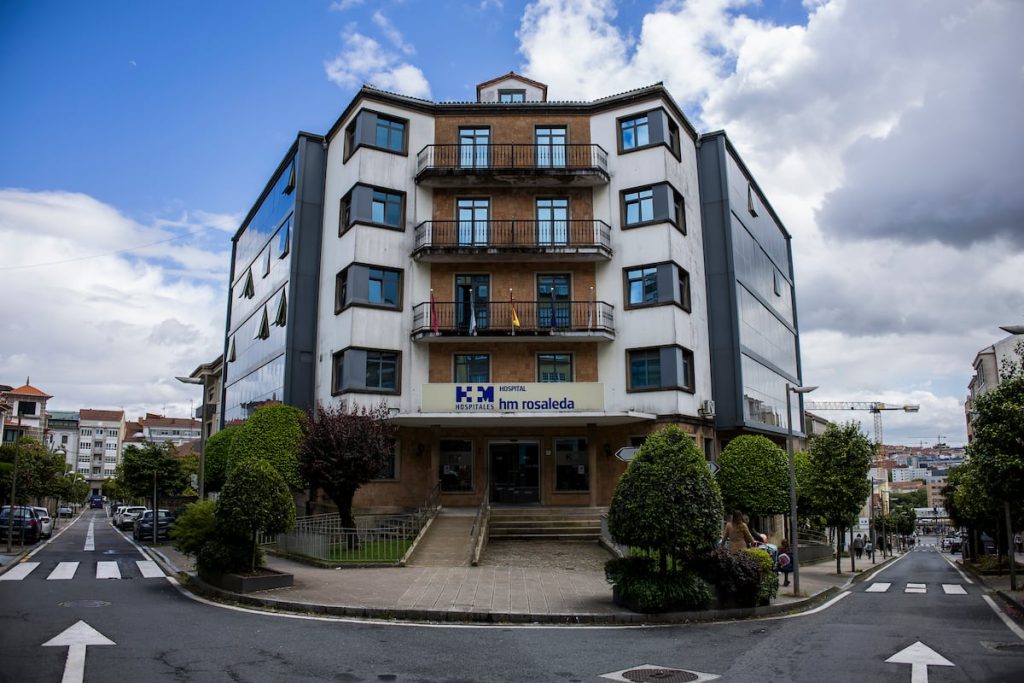P. was born into the world marked by a serious medical negligence that left him blind, with severe cerebral palsy, a significant delay in his psychomotor development, epileptic seizures, and respiratory problems. Now eight years old, his parents have not received any compensation for these damages. Although the medical malpractice committed by the gynecologist at the private hospital HM Rosaleda in Santiago de Compostela was definitively sentenced in 2020, the insurance company Segurcaixa Adeslas did not make any payment during this time, not even the minimum required by law. A court has now ordered the company to compensate the family with nearly 13 million euros, making it the largest healthcare compensation in Spanish history, doubling the previous records. The family’s journey to reach this point helps explain this record amount. The lawyer for the plaintiffs warns that the ruling, which can be appealed, “opens a breach in the waterline” of these companies, as they were waiting to wear down the family.
The medical negligence occurred in 2015 during a 15-hour delivery. The mother, a civil servant, was admitted at 10:30 am on June 30th to this private hospital in the capital of Galicia, arranged through Segurcaixa Adeslas, the insurer with which the civil servants’ mutual Muface has a contract. Labor was induced from that time, and by 11:00 pm, there were clear signs of fetal distress, as confirmed by the court ruling on the malpractice. The fetal heart rate monitor and contractions of the mother indicated an alarming situation. The gynecologist only had this technology to assess the baby’s condition since the hospital lacked the means to perform a fetal blood pH analysis. Despite the lack of an on-call anesthesiologist at the clinic, the possibility of a cesarean section was ignored, and efforts for natural delivery continued until 2:00 am on July 1st, even using vacuum extraction. When the woman was finally taken to the operating room, it was too late. Due to the baby’s condition at birth, he was transferred to the neonatal ICU of the public hospital in Santiago because the private center did not have this type of unit. The child required intensive care for 84 days.
The judicial process has been long and exhausting for the family. In 2020, the negligence was confirmed, but the calculation of the compensation was deferred to another lawsuit. Therefore, in December 2021, after the boy was granted a 100% disability in a parallel litigation with the regional government, the family filed a lawsuit against Segurcaixa Adeslas. The parents requested a compensation of 5.4 million euros plus interest for the hypoxic-ischemic encephalopathy (and its consequences) caused by the delayed cesarean section, but the insurer opposed. Among other arguments, they claimed to have never been aware of the child’s sequelae during these years, a claim refuted by the judge. The court emphasized that both the medical negligence and the severe damages suffered by the child at birth were documented in two previous final court rulings. The judge stated that the insurer was aware of the child’s condition at the time of discharge from the ICU in September 2015 and could have provided financial assistance then.
The family’s lawyer, with 25 years of experience in such cases, believes that the recent ruling is a significant blow to insurance companies, highlighting their lack of generosity. He received calls from colleagues at other firms who were upset by the precedent set by the court ruling, which could hurt them. In cases of medical negligence lawsuits, these companies usually do not make any payments before a final court decision to try to force a settlement. The judge’s verdict penalizing this strategy may make insurers think twice about their approach in the future. The condemned company has not commented on the case or clarified if they will appeal the decision. The compensation awarded takes into account various factors, including aesthetic damage, loss of quality of life for family members, the need to buy a new home, and future healthcare expenses.
The struggle of this family would have been impossible without financial resources. Throughout the years, they had to pay for specialized care for their son, therapies, prostheses, physiotherapy, as well as legal and procedural costs. If they had lost the case with legal costs, it would have bankrupted them. They did not qualify for legal aid when they initially sued (a right granted later thanks to a 2022 Constitutional Court ruling). This was not the only lawsuit they had to face since the medical negligence incident. They also took legal action against the regional government to have their son’s disability recognized as 100%. The government argued that increasing the child’s disability rate from 77% to 100% would not provide any tangible benefits to the parents in terms of additional support. The lawyer concludes that legislative changes are needed to ensure families are not left to seek justice on their own and bear the financial risks caused by others’ negligence.


